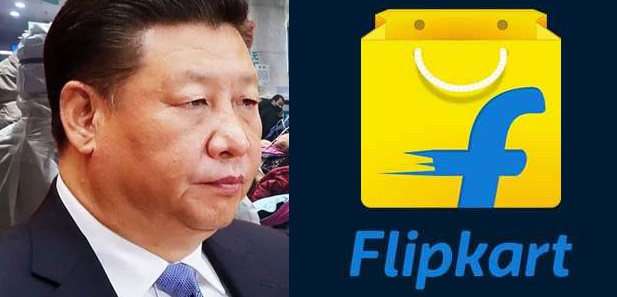The crackdown of Chinese Communist Party (CCP) on the tech sector had sent the investors completely haywire with concerns of their investments in China. However, as China is continuing its witch hunt over the tech sector to feed the ego of Xi Jinping, the investors are finding India lucrative for investment. In the latest development, Flipkart, India’s largest online retailer, announced on Monday that it had secured $3.6 billion from a group of investors, valuing the business at $37.6 billion.
According to Flipkart, the investment round was led by GIC, a Singaporean sovereign wealth fund, Canada Pension Plan Investment Board, SoftBank Group’s Vision Fund 2 and Walmart, a US retailer. Other investors included Tencent Holdings, Malaysia’s Khazanah Nasional Berhad, and others. As per reports, as certain Indian IT companies, notably food delivery company Zomato, prepare for a stock market debut, the jump in their valuation is an indication of significant investor appetite. It also comes at a time when the U.S.-listed Chinese IT firms are being intensely scrutinized by regulators.
On the other hand, China under Xi Jinping is doing everything to scare the tech sector investors away. It was earlier speculated by many commentators that China, under the leadership of Xi Jinping, is slipping further into the China of the Mao Zedong era, and the latest actions are making the markets of China less and less traversable, giving credence to these speculations.
The China Securities Regulatory Commission is leading efforts to revise rules on overseas listings that have been in effect since 1994. According to people familiar with the topic, Beijing regulators are contemplating regulatory changes that would allow them to prevent Chinese companies from listing overseas even if the unit selling shares is established outside China.
As per Asia Nikkei report, the deal with Flipkart is India’s biggest funding round this year, and cements its position as one of the country’s most valuable companies. It comes more than three years after Walmart acquired a 77% stake in Flipkart for $16 billion, and marks the return of SoftBank, which had sold its stake as part of that transaction, as an investor. Flipkart confirmed plans to go public but did not elaborate on timing. A spokesperson said: “It is our continued aspiration to make the company public, and our plans remain unchanged.”
“We will continue to invest in new categories and leverage made-in-India technology to transform consumer experiences and develop a world-class supply chain,” Flipkart Chief Executive Kalyan Krishnamurthy said in a news release. It will focus on accelerating growth for millions of small and medium Indian businesses, including small mom-and-pop stores known as ‘kiranas’ utilizing the funds raised.
The prospect of lucrative IPOs is driving capital into Indian tech companies, bridging the funding gap between Chinese startups. Ola, a ride-hailing business, announced last week that it had raised $500 million from a consortium of investors, including Temasek, the Singaporean sovereign wealth fund.
In case of CCP’s regulatory actions, it has caused a severe sell-off in the shares of groups invested in the CAC-monitored enterprises. SoftBank Group shares, the largest outside investor in Didi Global and (a supporter of Full Truck Alliance), plummeted 5.4% on Monday (5th July) to their lowest level since December. Shares in China’s Tencent Holdings, which backs all three companies under investigation, dropped 3.6% in Hong Kong, to their lowest level since December 29.
On one hand, investors are losing their confidence in the Chinese government to provide a stable environment to maintain a good market situation which can be feasible for investments; on the other hand, India is turning out to be a better alternative with democratic tools for investors and a market friendly government as well as many startups and big companies providing lucrative options for investment.
